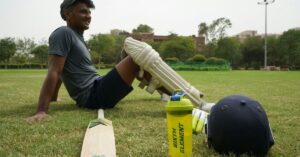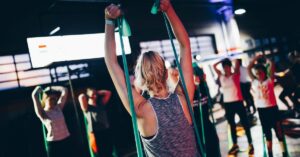Nutritional Planning for Endurance Athletes

Nutritional Planning for Endurance Athletes
Introduction
Endurance athletes require specialized nutritional strategies to support their training, performance, and recovery. Whether you’re a marathon runner, cyclist, triathlete, or long-distance swimmer, proper nutrition plays a crucial role in optimizing endurance and maintaining overall health.
Key Macronutrients for Endurance Athletes
Macronutrients carbohydrates, proteins, and fats form the foundation of an endurance athlete’s diet:
Carbohydrates
- Primary fuel source during prolonged exercise.
- Recommendation: 6-10 grams/kg body weight per day, higher on training days.
- Examples: Whole grains, fruits, vegetables.
Proteins
- Supports muscle repair and growth.
- Recommendation: 1.2-2.0 grams/kg body weight per day.
- Examples: Lean meats, fish, dairy, legumes.
Fats
- Provides sustained energy and supports cell function.
- Recommendation: 20-35% of total daily calories.
- Examples: Avocados, nuts, seeds, olive oil.
Hydration
Proper hydration is critical for endurance athletes to maintain performance and prevent dehydration. Guidelines:
- Pre-exercise: Drink 5-7 ml/kg body weight 4 hours before.
- During exercise: Aim for 150-350 ml every 15-20 minutes.
- Post-exercise: Replace fluids with 1.5 times the amount lost (weighing before and after exercise can help estimate).
Micronutrients and Supplements
Endurance athletes often have increased needs for certain micronutrients:
- Vitamins and minerals: Ensure adequate intake of iron, calcium, vitamin D, and B vitamins through diet or supplements.
- Electrolytes: Important for hydration and muscle function, especially in hot environments or long-duration events.
- Caffeine: Can enhance endurance performance in moderate doses (3-6 mg/kg body weight).
Meal Timing and Planning
Optimal meal timing helps maximize performance and recovery:
- Pre-exercise: Eat a carbohydrate-rich meal 3-4 hours before exercise.
- During exercise: Consume easily digestible carbohydrates (gels, sports drinks) for events lasting longer than 60-90 minutes.
- Post-exercise: Aim for a meal containing carbohydrates and protein within 30 minutes to enhance glycogen replenishment and muscle repair.
Case Studies and Examples
Consider the nutritional strategies of successful endurance athletes:
Chris Froome, a Tour de France champion, emphasizes high-carbohydrate meals during training and uses protein supplements for recovery.
These strategies illustrate the importance of tailoring nutrition to individual training goals and preferences.
Conclusion
Nutritional planning for endurance athletes should be personalized and based on training intensity, duration, and individual needs. By focusing on adequate macronutrients, hydration, micronutrients, and strategic meal timing, athletes can optimize performance and achieve their competitive goals.






